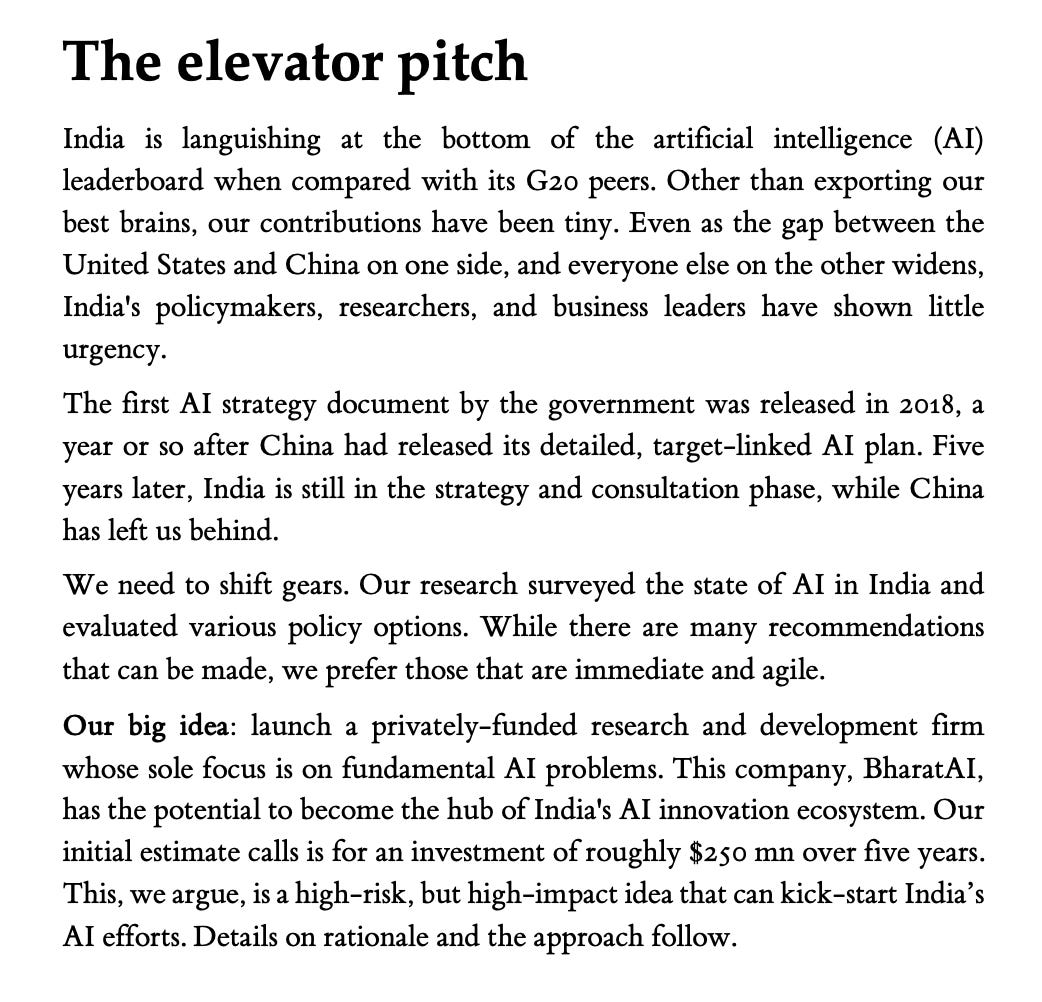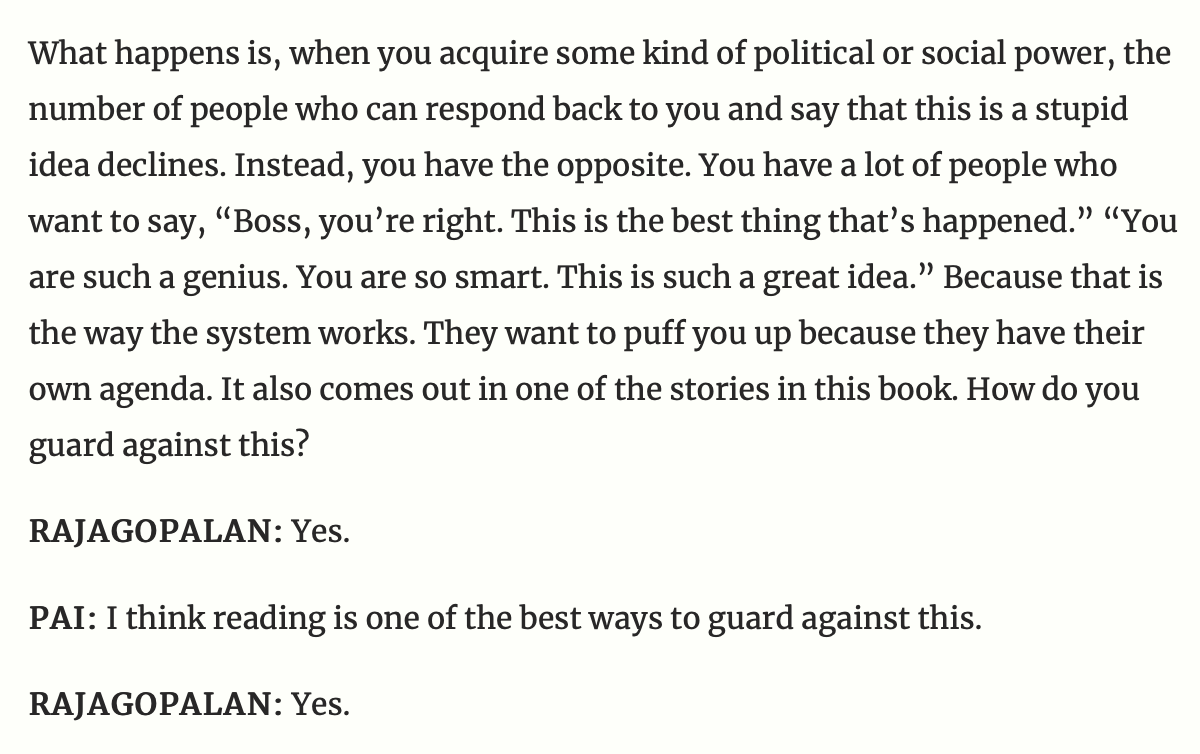Rebooting AI in India: Disrupting the Status Quo
Dear Reader,
Welcome to Takshashila Dispatch. In this edition, we bring to you our latest work on disrupting the status quo in artificial intelligence, wars India must be prepared to fight, building a republic of active citizenry, the bright future of Australia-India ties and more.
Also, the next cohorts of Takshashila’s flagship public policy programmes - GCPP and PGP - have been announced and applications are now open. Visit here for more information.
Rebooting AI in India
Read this elevator pitch from Takshashila’s latest discussion document on Rebooting AI in India: One Disruptive Idea to Shake the Status Quo by Shailesh Chitnis:
To read more on the execution of the strategy and its near-term impact, visit:
Or if you want a quick insight into the discussion document, listen to this episode of All Things Policy where Shaliesh spoke to Bharath Reddy about his work on where India stands concerning innovation in AI:
Wars India Must Prepare to Fight
In his weekly column for ThePrint, Lt. Gen. Prakash Menon writes on the three wars India must be prepared to fight:
War is organised violence applied to achieve political purposes. And this objective nature does not change, no matter the type of war. War, however, must not be confused with warfare. The latter talks about the methods used in the application of violence and shapes the character of war, which often changes, driven mostly by human agency and technology.
War must be viewed as a state of the relationship between political entities that could be State or non-State actors. In war, violence is the predominant means of communication. It can also be accompanied by channels of dialogue, which could either be diplomatic or conducted through other means.
In the author’s view, India must be prepared to fight three wars: nuclear war, conventional war, and unconventional war.
Why the Powerful Should Read Books
This excerpt is from Nitin Pai’s chat with Shruti Rajagopalan on the Ideas of India podcast, where they discuss the lessons of Indian folktales for citizens and bureaucrats, the importance of civic education, when democracy does and doesn’t work, the effects of economic growth on individual prosperity and much more:
Australia India Ties: Chat with Ambassador Anil Wadhwa
As a couple of months have passed since the India-Australia trade agreement (Ind-Aus ECTA) came into effect, Carl Jaison spoke with former Ambassador Anil Wadhwa who had authored India’s Australia Economic Strategy (AES) during his tenure as Secretary (East) in the MEA. Listen to this episode of All Things Policy from Monday:
Sachin Kalbag is Back With Whatsapp University: Jhakaas ya Bakwaas
After a break, Sachin is back on Whatsapp University: Jhakaas ya Bakwaas podcast, for HT Smartcast where he attempts to give an insight into managing the Whatsapp University scale disinformation in our lives.
In this episode, he speaks with RJ Rohini on tackling fake news, especially when credible media falls prey to it, in the context of the recent misinformation regarding Hindi migrant labour in Tamil Nadu:
Apply for the NASP Fellowship: March 31st is the Deadline
The NASP Fellowship aims to create high-quality scholarship & knowledge of Pakistan by nurturing new generations of analysts in academia, think tanks, media & industry.
NASP invites applications from researchers from any background, including from universities, research institutes, media, government services, and industry, who are enthusiastic about undertaking new research on Pakistan.
Prospective fellows must either be working or studying in India, have at least an undergraduate degree, and be proficient in English.
NASP fellows will undertake research in one or more of the following areas: economy; defence, geopolitics; environment; education; technology; society; and sub-national politics.
That’s all from us this week. Take care!






